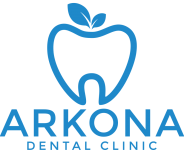Root Canal FAQ
Q: WHAT IS A ROOT CANAL?
A: A root canal, or endodontic therapy, is the removal of the entire pulp throughout the root canal system within a tooth. A tooth can have several roots and a canal or two within those roots. Once the infected pulp is removed from the canal, the canal is cleaned, shaped, and filled with a synthetic filling.
Q: WHY WOULD I NEED A ROOT CANAL?
A: There are several reasons why Dr. McCallum/Lovell may recommend a root canal including:
- An infection in your tooth that has reached the nerves
- Extensive decay or a deep cavity that can’t be filled because the pulp and nerves are also involved
- A badly cracked tooth
- A broken tooth
- Repeated fillings of the affected tooth
Q: IS IT PAINFUL TO HAVE A ROOT CANAL DONE?
A: It’s a common misconception that a root canal is something to avoid at all costs due to it being painful. While this may have been the case decades ago, things are much different today. Having a root canal done is no more uncomfortable than having a cavity filled. We’ll make sure your tooth is completely numb so you won’t feel any pain during the procedure.
Q: WHAT HAPPENS DURING THE PROCEDURE?
A: Once the area is numbed, Dr. McCallum/Lovell will make a small opening in the top (crown) of the tooth to access the pulp chamber and canal. He will then remove the diseased tissue and disinfect the chamber and the canal all the way to the root end. Then the canal is filled with a biocompatible material and sealed. The access hole will then receive a (temporary) filling.
Q: WHAT ARE MY OTHER TREATMENT CHOICES?
A: If you decide against having a root canal done, the only other alternatives are natural tooth loss or having your infected/damaged tooth extracted. This is not the recommended course of action to take because a lost or pulled tooth will leave a gap in your smile which will prompt the adjacent teeth to shift out of alignment in an effort to close that gap. This can hamper your ability to chew food properly which can lead to problems with digestion. And, since misaligned teeth are more difficult to clean, you could end up with tooth decay or gum disease to cause even more problems that can be painful and costly to treat.
Q: WILL I HAVE DISCOMFORT AFTER THE PROCEDURE IS DONE?
A: You may have some tenderness or mild discomfort when biting down that can last for a couple of days following your treatment. You can take an over-the-counter anti-inflammatory pain reliever like ibuprofen according to package instructions to relieve you of any discomfort you feel. We recommend chewing on the other side until a permanent restoration such as a crown is placed on top of the treated tooth.
Q: IS THERE ANYTHING I CAN DO TO AVOID THE NEED FOR FUTURE ROOT CANALS?
A: Yes, absolutely! You can avoid tooth decay by doing a great job with your oral hygiene every single day. You also should try to avoid eating foods high in sugar and drinking acidic beverages like soda and fruit juices to help protect your teeth from decay. Additionally, you should visit your dentist at least once per year so we can examine and clean your teeth. We also highly recommend wearing a custom-made mouthguard whenever you’re playing sports or doing anything that poses a risk of injury to your teeth.
